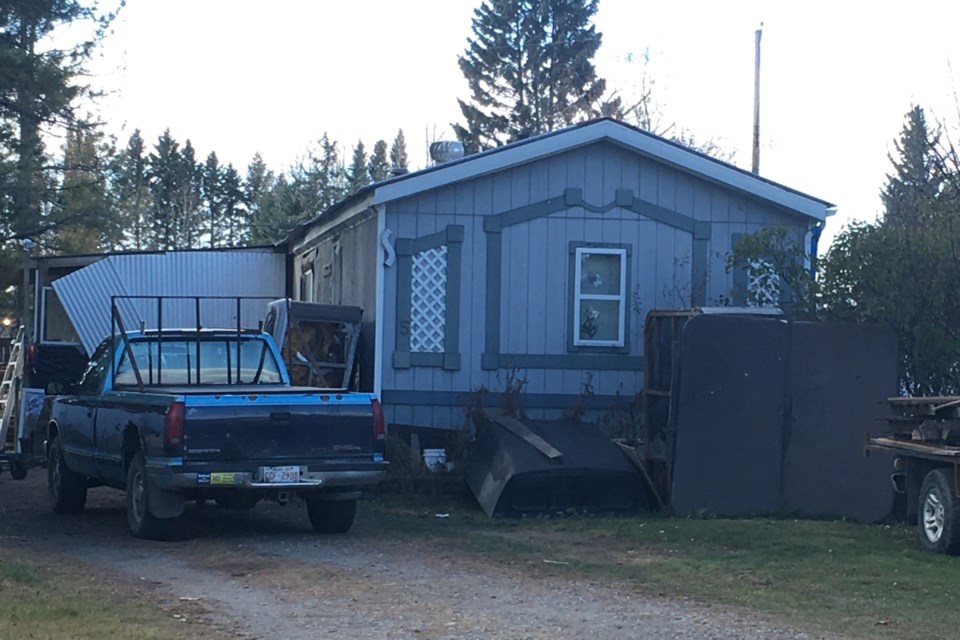SUNDRE – For the first time in his professional experience in a situation the municipality has not faced in decades, the Town of Sundre's director of corporate services said a tax recovery sale for a residential property went through to a live auction that in the end did not yield any bids.
Earlier this summer, council had set reserve bids and scheduled an auction date on Wednesday, Oct. 23 for three residential properties that had fallen several years behind in property taxes owed.
While the municipality deals every year with similar situations in a process that is strictly regulated by the Municipal Government Act, this was the first time in Chris Albert’s memory that a property actually ended up going for auction.
Although two of the three properties were settled in time, a third property on Oak Crescent off of Fourth Street NW went up for auction with a reserve bid set at $230,000.
Only one member of the public attended the live auction and they did not place a bid, said Albert.
Although an auction might otherwise last as long as need be, it in this instance only took about 10 minutes, he said.
The process begins with Albert reading over a number of statements including the terms and conditions of the sale and the fact that any properties being auctioned are sold as-is, where-is without any warranties or guarantees, he said.
“It’s not a submitted bid process, it is live,” he said.
“It’s not your typical live auction with a professional auctioneer … we’re not professional auctioneers, so trying to do what they do is not going to be feasible,” he said.
“But what happens is, it’s kind of similar,” he said, adding interested parties show up with the auction starting off at the minimum reserve bid.
“And then if anybody would like to make a bid, they can kind of raise their hand or make it known that they would like to make a bid.”
Once there are no more escalating bids, that particular auction is closed and the successful bidder would be obliged to meet the terms of the sale, which includes providing a 10 per cent same-day deposit with the understanding the remaining balance is paid within 30 days.
“Should there be no successful bids, one of the options available to council is that the town now has the option of becoming the owner of the property; of taking title on the property,” said Albert.
However, that decision had as of the time he spoke with the Albertan not yet been made.
Albert said a report outlining the situation will be presented to council at the upcoming meeting on Monday, Oct. 28 with a decision to be made at a later date.
“The next step is a further decision has to go to council of how they would like to proceed now that we’ve had no bids on the property,” he said.
“There’s a few options that council will have in front of them as to how they’d like to proceed with the tax recovery,” he said.
“There’s a long, convoluted process that is involved behind council making the decision as to what they want to do.”
Although this will be Albert’s first time navigating the process, he said that based on his understanding following conversations with members of the town staff who have been around a long time that the situation is not without precedent.
That being said, it’s also extremely rare.
“This has only happened one other time, and that was approximately 30 years ago,” he said.
“I believe that the council of the day – there were also no bids received at the auction – so for that particular property, the town did take title on that property and then sold it at a later time."
A property being auctioned might not yield bids for any number of reasons, he said.
“The property might be in disrepair, or the bidders may not think that the value is there in terms of the reserve bid,” he said, adding what may then happen is the municipality ends up taking over the title to address any deficiencies to make the property more appealing.
With all of that being said, Albert sought to emphasize the fact that tax recovery sales are not pursued on some random whim.
“It’s very important to reiterate over and over, is that this is a highly-regulated process,” he said.
“The steps are outlined in legislation as to what we do and when we do it; it’s not something that we look forward to. This was not a pleasant experience for me – it’s not the highlight of my day,” he said during an interview following the auction.
“We would prefer to avoid it, but we cannot. If the taxes are in arrears, this is what we have to do.”



